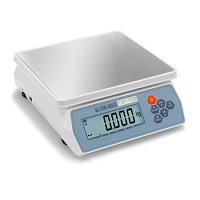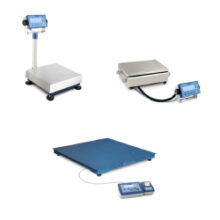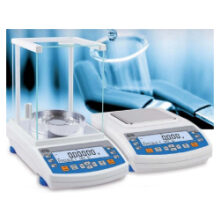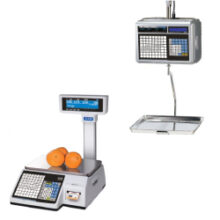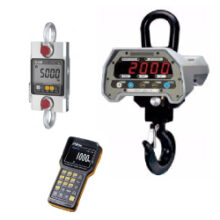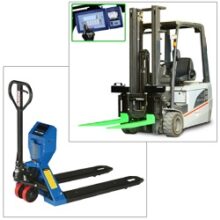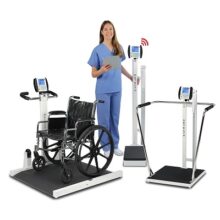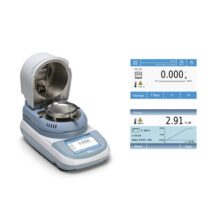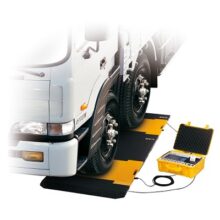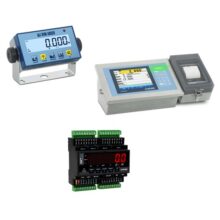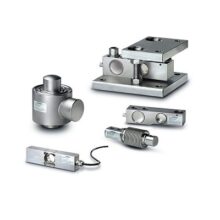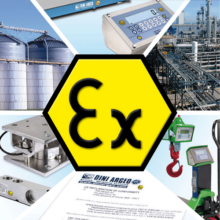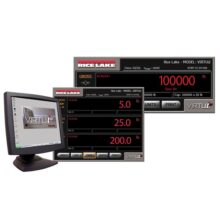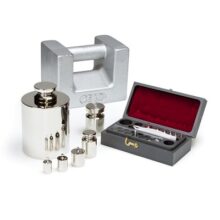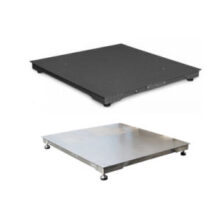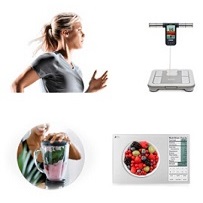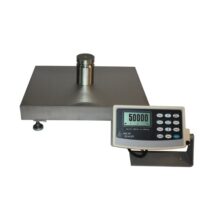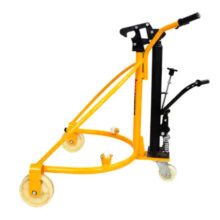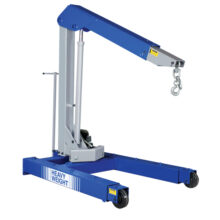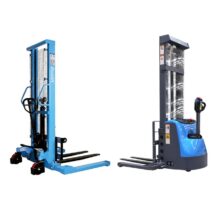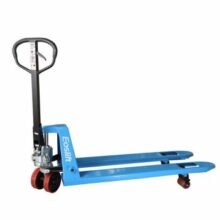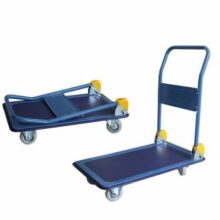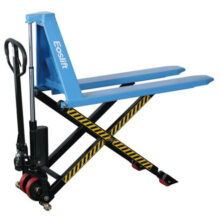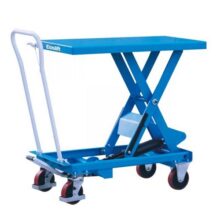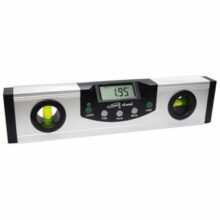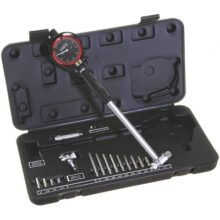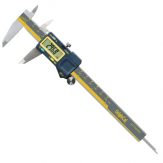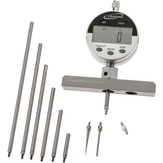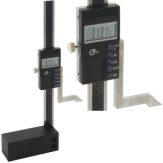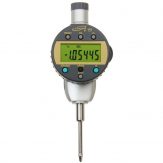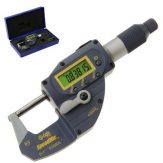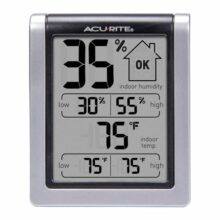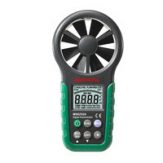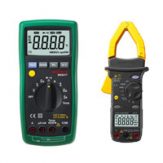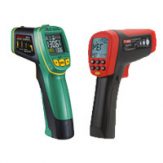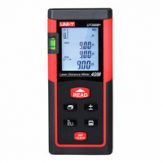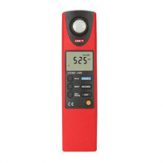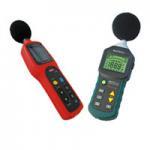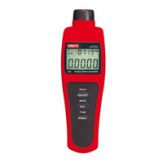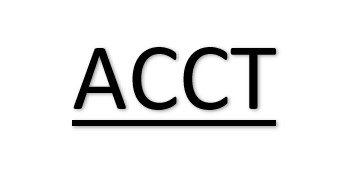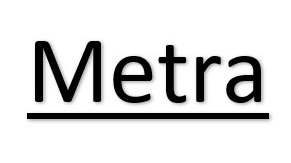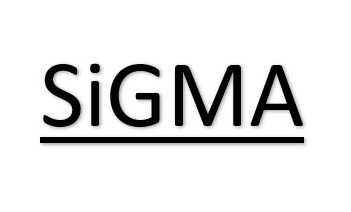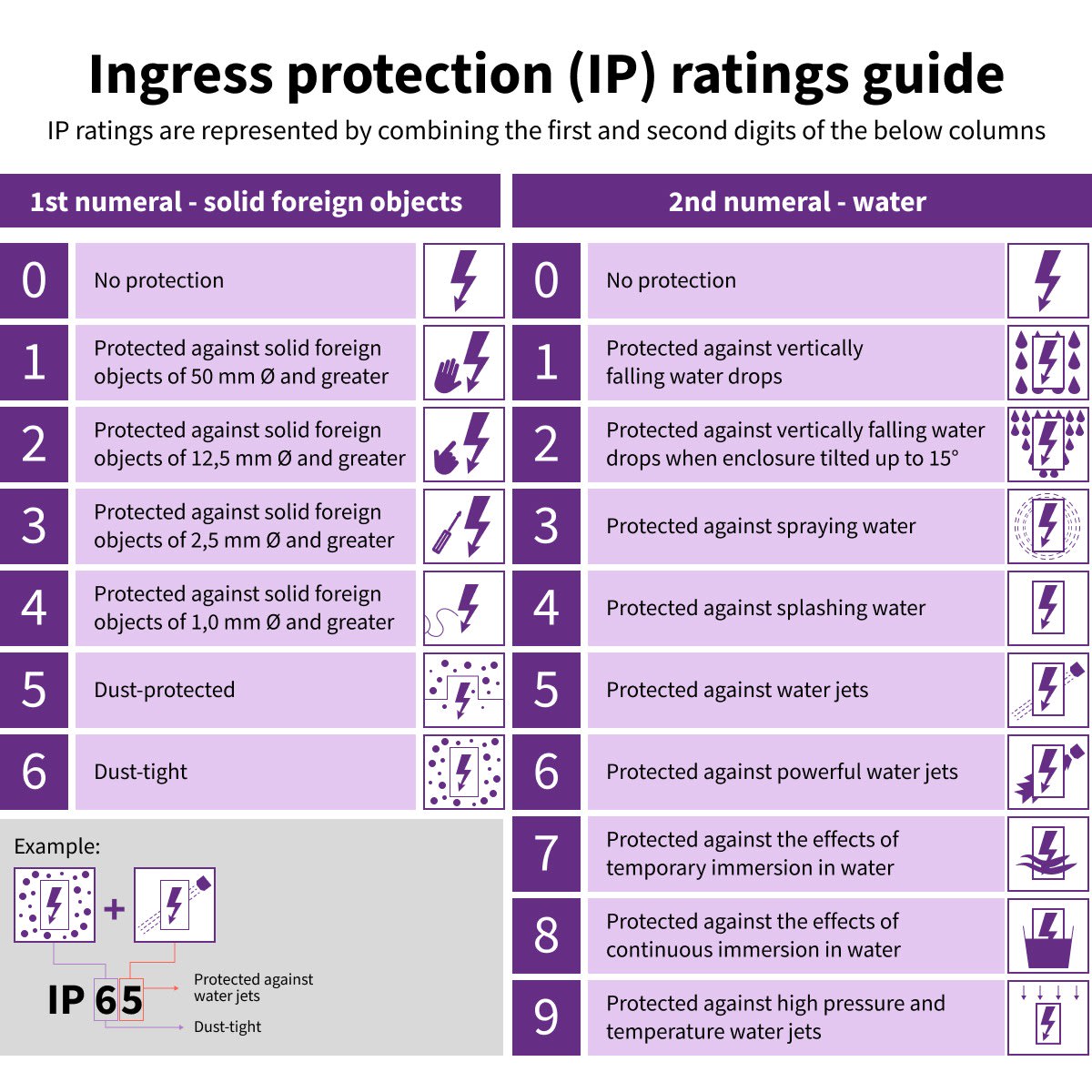When choosing electronic devices or industrial equipment, IP ratings are a crucial factor to consider. These ratings signify not only the durability of a product but also its ability to withstand environmental challenges. Here’s a detailed guide to understanding IP ratings and how they can help you make the right choice.
Understanding IP Ratings
IP Ratings (Ingress Protection Ratings) classify a product’s resistance to dust, water, and other elements. Each rating consists of two digits:
1. Protection Against Solid Objects (First Digit: 0–6)
- 0: No protection.
- 1: Protection against objects larger than 50mm.
- 2: Protection against objects larger than 12.5mm.
- 3: Protection against objects larger than 2.5mm.
- 4: Protection against objects larger than 1mm.
- 5: Dust-protected (limited ingress, no harm to functionality).
- 6: Dust-tight (complete protection against dust).
2. Protection Against Water (Second Digit: 0–9)
- 0: No protection.
- 1: Protection against dripping water.
- 3: Protection against spraying water.
- 5: Resistant to water jets.
- 7: Resistant to immersion in water up to 1 meter.
- 8: Resistant to immersion beyond 1 meter (manufacturer-specified depth).
Example:
- IP65: Dust-tight and resistant to water jets.
- IP68: Dust-tight and resistant to immersion beyond 1 meter, often found in high-performance smartphones.
What Are IPX Ratings?
An “X” in an IP rating (e.g., IPX7) means the product has not been tested for solid object ingress but is rated for water resistance.
Examples of IPX Ratings:
- IPX7: Submersible in water up to 1 meter for 30 minutes.
- IPX5: Protected against low-pressure water jets from all directions.
IPX ratings are common in portable speakers and wearables, where water resistance is more critical than dust protection.
What’s Considered a ‘Good’ IP Rating?
For most outdoor environments, a product with at least an IP65 rating is suitable.
Higher IP Ratings:
- IP67: Dust-tight and resistant to immersion in water up to 1 meter for 30 minutes.
- Example: Accidental submersion, like dropping a device in a pool.
- IP68: Dust-tight and resistant to continuous immersion in water beyond 1 meter.
- Example: Underwater drones, industrial tools, premium smartphones.
Examples of IP67/IP68-Rated Devices
- iPhone 14 Pro:
- Dustproof and water-resistant up to 6 meters for 30 minutes.
- Ideal for challenging environments like beaches or poolside.
- JBL Charge 5 Bluetooth Speaker:
- IP67-rated, perfect for outdoor music sessions.
- Pixel 7 Pro:
- Advanced durability for accidental spills and splashes.
- Weighing.ae IP68 Weighing Scales:
- Designed for challenging industrial environments, ensuring precision and long-lasting durability.
CAS SWII-W – Weighing Scale (Waterproof)
- Designed for challenging industrial environments, ensuring precision and long-lasting durability.
Choosing the Right IP Rating for Weighing Scales
When selecting a weighing scale, the IP rating is a critical factor that directly impacts its durability and suitability for specific environments. Here’s a guide to help you choose the right IP rating for your weighing scale:
1. IP65: General Industrial Use
- Ideal For: Dry or slightly damp environments, such as warehouses or manufacturing floors.
- Protection: Dust-tight and resistant to water jets, making it suitable for environments where cleaning with low-pressure water is required.
- Examples: Counting scales and general-purpose industrial scales.
2. IP67: Semi-Wet Environments
- Ideal For: Environments where occasional exposure to water or high humidity is common, like food processing areas or agricultural settings.
- Protection: Dust-tight and resistant to temporary immersion in water up to 1 meter for 30 minutes.
- Examples: Portable scales and waterproof bench scales.
3. IP68: Harsh and Wet Environments
- Ideal For: Extremely harsh conditions, such as chemical plants, marine environments, or industrial facilities with continuous water exposure.
- Protection: Dust-tight and resistant to continuous immersion in water beyond 1 meter, making it suitable for rigorous cleaning processes or underwater use.
- Examples: High-performance waterproof scales like those used in the pharmaceutical or seafood industries.
Selecting the Best Fit
- Environmental Conditions: Assess the level of dust, water, and other potential hazards in your workspace.
- Maintenance Needs: Higher IP-rated scales can reduce cleaning time and maintenance costs in challenging environments.
- Application-Specific Requirements: Choose an IP rating that aligns with the precision and durability needs of your specific industry.
Why IP Ratings Matter
- Durability: Identifies products built to withstand specific conditions.
- Safety: Ensures reliable operation even in extreme environments.
- Cost Efficiency: Reduces repair and maintenance expenses.
Explore IP-Rated Products at Weighing.ae
At Petra Mechatronics Middle East, we offer a wide range of IP-rated products, including:
- Waterproof weighing scales.
- Dustproof industrial balances.
- Durable equipment for harsh environments.

